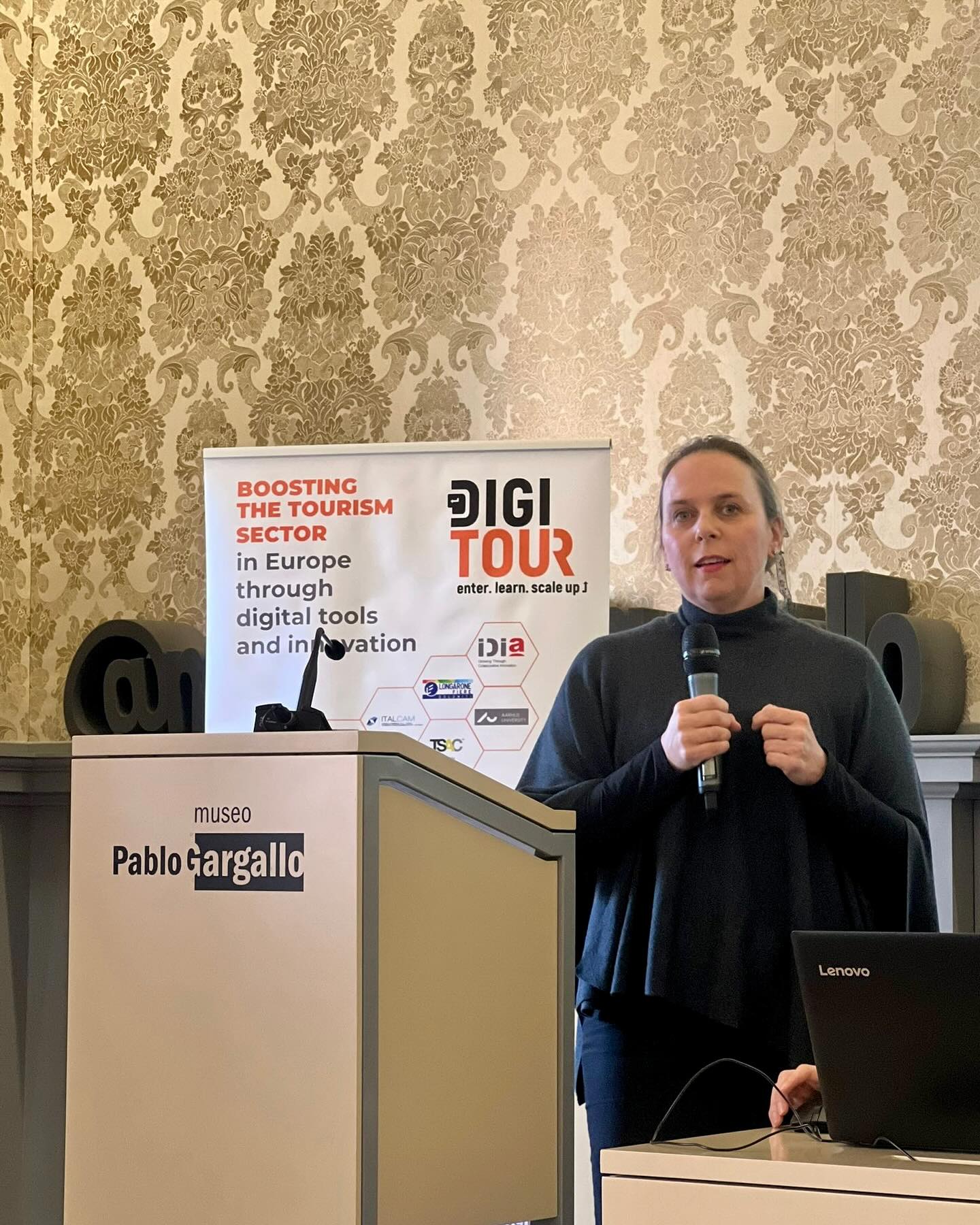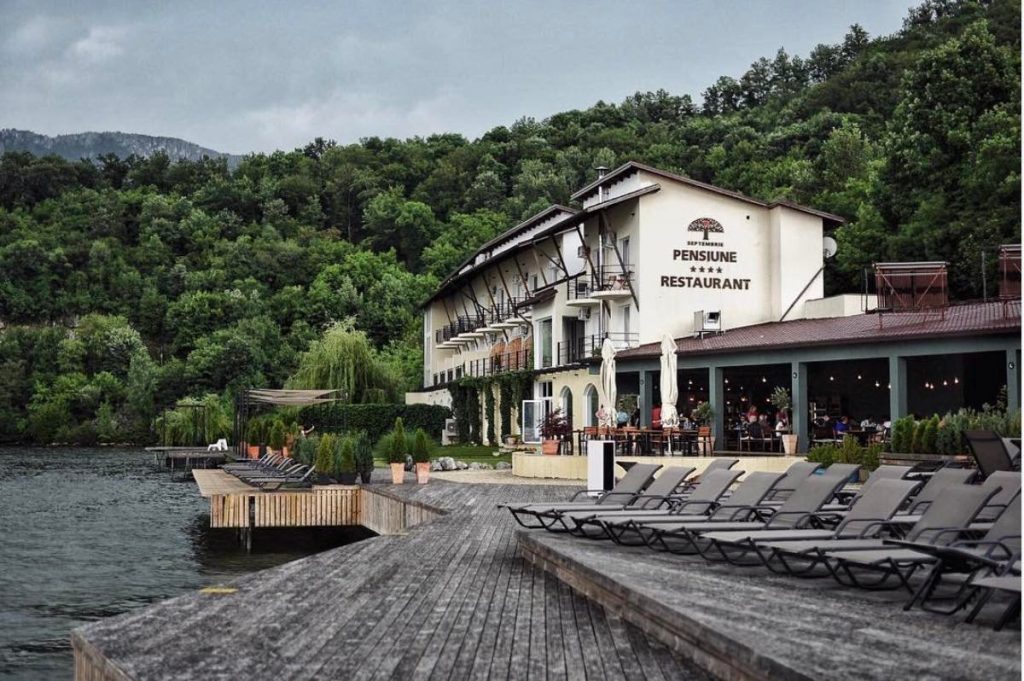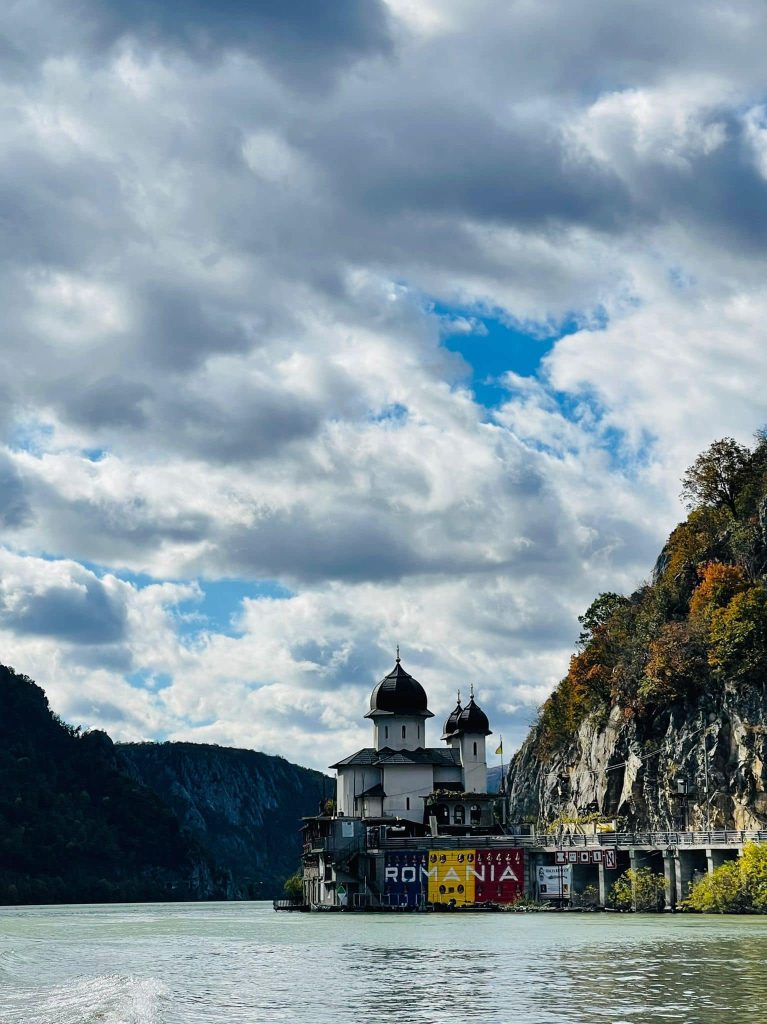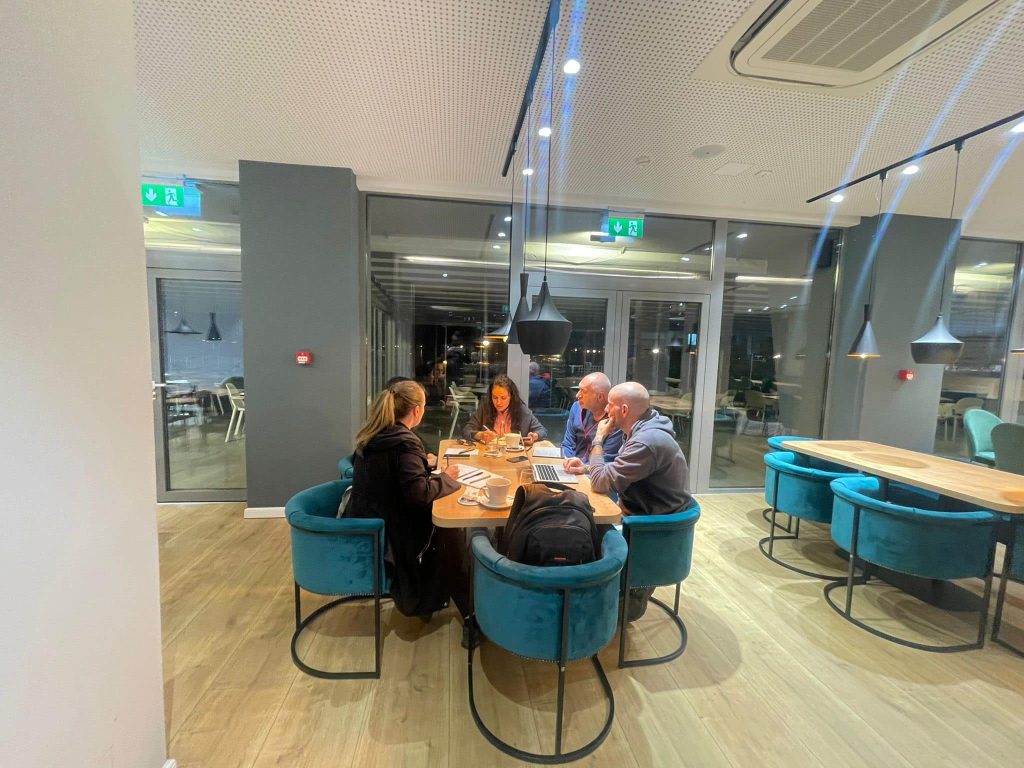Today we participated in the event DIGITOUR: Forging and financing the Digital Future of Tourism, which was held at the Pablo Gargallo Museum in Zaragoza. There we talked about our participation in the #Digitour project, which implements digital tools at the service of tourism companies, in our case located in towns with a very relevant historical and artistic heritage.
Working on the possibilities of establishments with a historical and heritage identity can generate a new customer profile, improve a business positioning that looks beyond “classic tourism” and, for the towns in the Territorio Mudéjar network, work on the preventive conservation of their resources by favouring the work of specialised professionals.
For this reason, Territorio Mudéjar is coordinating the design of a quality seal to distinguish rural establishments and help them to offer appropriate services for scientific tourism linked to heritage and cultural resources.
Where do we do it? The pilot project has started with the redesign of the brand of the Posada del Almudí in Daroca – a historic building in the centre of the town with an interesting rehabilitation – and an establishment in Romania, Pensiunea Septiembrie in the town of Elsenita – a recently constructed building in the Natural Park of the Iron Gates.
These establishments have become the test bed for designing the service model that a travelling cultural heritage management professional needs on a day-to-day basis.
Who do we do it with? Our digital provider is Estudio Mique Diseño.
*The project, called DIGITOUR, is funded by the European Commission’s Executive Agency for Small and Medium-sized Enterprises under the COSME COS-TOURINN-2020-3-04 programme.
What are we pursuing?
The project aims to position these two accommodations as centres of excellence for the reception of researchers and creatives and to become a local driver to activate other businesses related to the services required by these travellers/workers.




